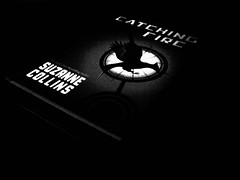The critical approach that I'm taking for my research project is genre criticism, and the film I'm analyzing is Percy Jackson & the Olympians: The Lightning Thief. My understanding of this approach is that it looks at how a film fits into an established genre, or doesn't. Science fiction and fantasy is one of those genres, as is Action/Adventure, and it seems that my film fits into both, but it's not really science fiction or action: it's fantasy-adventure. Beyond that, it is also part of a subgenre that features kids as the heroes.
And there's the problem for me as well as the benefit. It seems to me that I'm going to be trying to identify and define a new(ish) category, so there might not be a lot of material available on this genre (bad) while I will have to do a lot to explain my model (good, in terms of meeting the length requirement). Not only that but I have to include a lot of different films if I stick to what I have so far. The characteristic that all of them share is that the adults are not involved in the stories except as villains or advisors (and their advice is frequently ignored by the kids). However, I think that I have to exclude all of the teen-dystopia films (like The Hunger Games), because some of them are almost horror films, going all the way back to the first Halloween, which actually is a horror film. And that's just the start!
This is going to take a lot of thinking. I'm hoping to get started on my library research in the next week.










